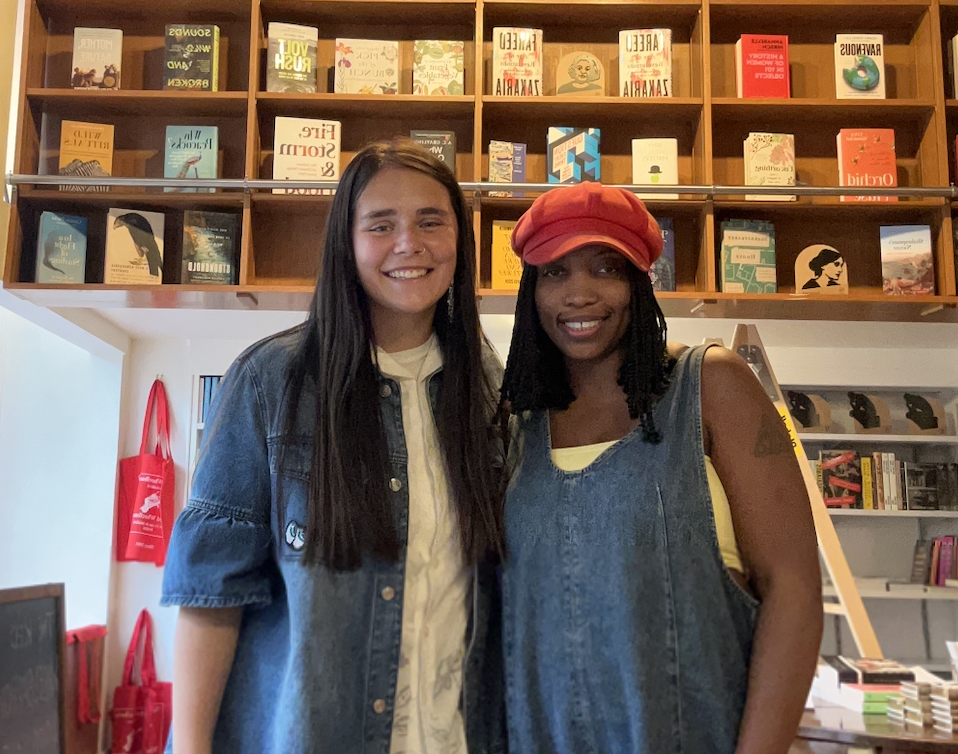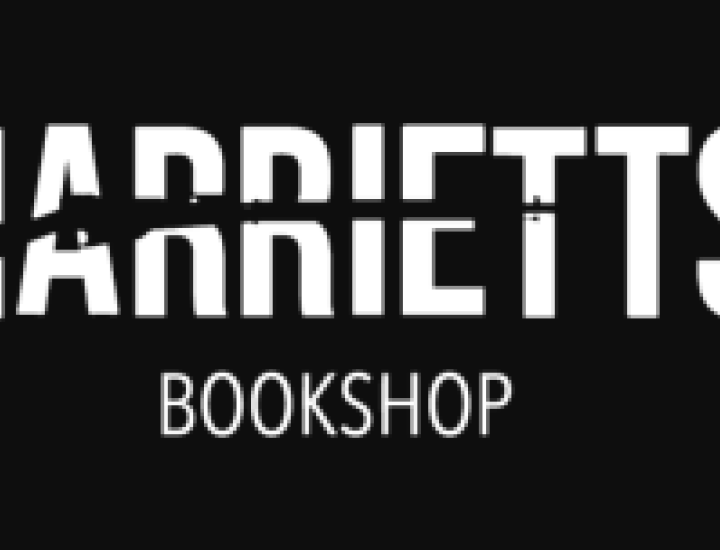Rooted in Legacy, Driven by Vision: Jeannine A. Cook's Journey from Philly to Paris, and Everything in Between
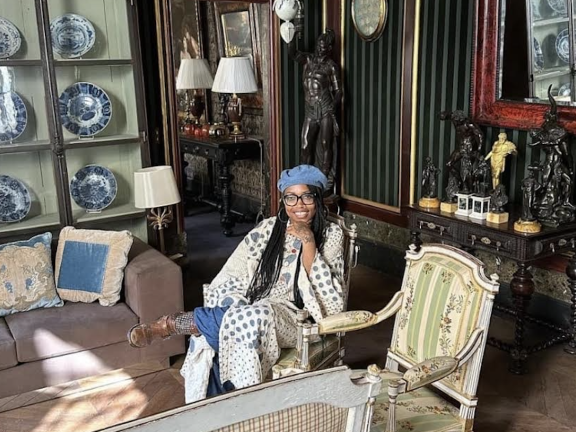
The ideas and plans began to take shape with mornings on the sacred land in Maryland where Harriett Tubman once helped her friends and family escape to freedom and afternoons spent in Tennessee where Ida B. Wells once taught children in Memphis using the power of her pen to denounce mob violence, poverty, and lynching to both national and international audiences. The time spent immersed in these environments, along with an impressive background of activism, writing, teaching, and an ever-growing passion for sharing knowledge and art and promoting accessibility to books, propelled Jeannine Cook to open Harriett’s Bookshop in Fishtown, Ida’s Bookshop in Collingswood, New Jersey, and enter the highly competitive literary scene to lay the foundations of a potential Josephine’s Bookshop in Paris.
She didn’t simply open the shops - she fought for years to be able to sign a check and call them her own. Each shop has the goal of creating a trustworthy and community-centered space and refuge that celebrates diverse voices and experiences, specifically that of women. Through reading stacks of literature about Wells and Tubman, speaking to historians, and visiting the places where they worked and lived, Cook was able to have an inner dialogue, a conversation if you will, to be able to shape her plans and create a vision for the shops.
Surmounting challenges that would lead most to throw their hands up in the air and call it quits, she recently bought the building that Harriett’s calls home, and has ambitions to keep it growing into an active community space, cafe, and wellness center. She slept on the floor of the Harriett’s during COVID, knocked on doors and sent out emails to donors, funders, and state offices, filled out grant applications, and conducted a series of interviews to make her vision come to life, all with limited luck. Over the course of a couple of years, people from all over the city, the country, and the world sent in small donations through an online fundraising campaign that empowered Jeannine to gain ownership of Harriett’s.
In her writing and interviews, she often compares renting to sharecropping. The lack of ownership, both a historical and contemporary reality for many small businesses, “translates into a limited ability to shape our destinies, make long-term investments, or build generational relationships.” Ultimately, it wasn’t some big corporation, government grant, or private foundation that swept in to save the day and supply the funds – it was the community.
As I sat down with Jeannine to discuss all of this, the luxurious Luxembourg Gardens to our back, this foundational importance of community became a running theme of our conversation and a notable source of motivation for her to keep expanding and taking up space. We sat down around a worn wooden table stacked with scratches and piles of books to discuss her leap from Philadelphia to Paris over the past couple of years to pursue an ambitious project of carving out a unique space where literature, community, and activism intersect, ultimately building upon what she has so thoughtfully constructed in the states. Sitting together in the cozy Red Wheelbarrow Bookstore, one of the handful of anglophone bookshops scattered across the French capital, we discussed the challenges, successes, plans, and hopes that have arisen in her ambitious decision to go global.
Jeannine first came to the cultural capital on a scholarship to study James Baldwin when her inner dialogue and conversation with Josephine began. She was clear from the start - she was not there by accident or to follow narrowly personal ambitions. Just as she has listened to and been guided by Harriett and Ida, she spoke extensively about her need to step into the world of Josephine Baker, another extraordinary heroine, activist, visionary and complex Black woman who once danced, spied, sang, advocated, and walked the streets of Paris.
After having left the United States during the era of strict Jim Crow Laws and extreme racial violence, Baker headed to Europe, like many other Black Americans during the 20th century (Baldwin, Charlie Parker, Eugene Jacques Bullard, W.E.B. Du Bois, and Langston Hughes, to name a few). Her achievements in her adopted country became so numerous and applauded that she went on to become the first and only Black woman to be awarded the Legion of Honor, one of France's highest honors, and inducted in the Panthéon mausoleum.
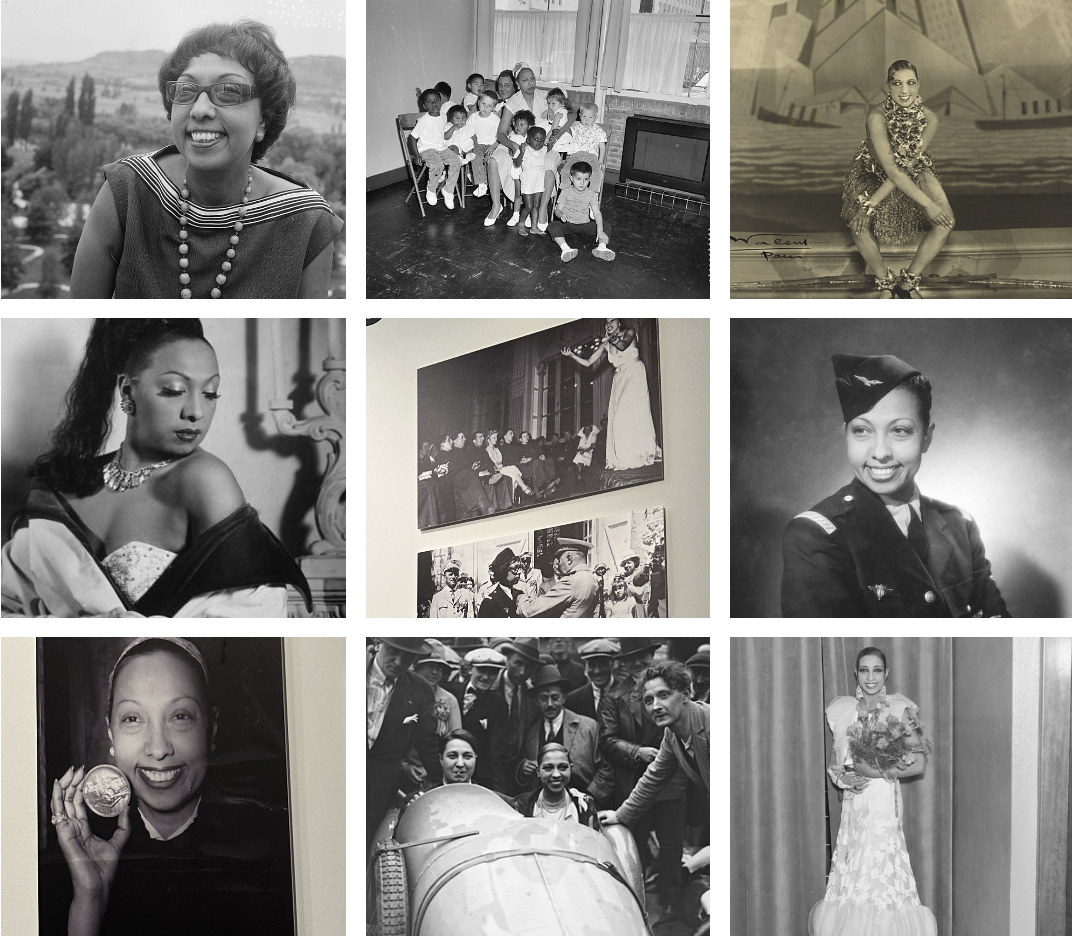
In a symposium hosted at the American University of Paris in 2023, where Josephine’s daughter Marianne was present, Jeannine channeled Josephine’s bygone era with a new sense of energy fit to challenge the problems society is facing today. Books about Baker’s life and other novels and works of nonfiction detailing Black Americans’ life in Paris, as well as major classic works of literature that primarily seek to center female authors, were loaded into Jeannine’s carry-on luggage after problems with shipment and delays. The show needed to go on, and Jeannine hadn’t crossed the Atlantic for nothing.
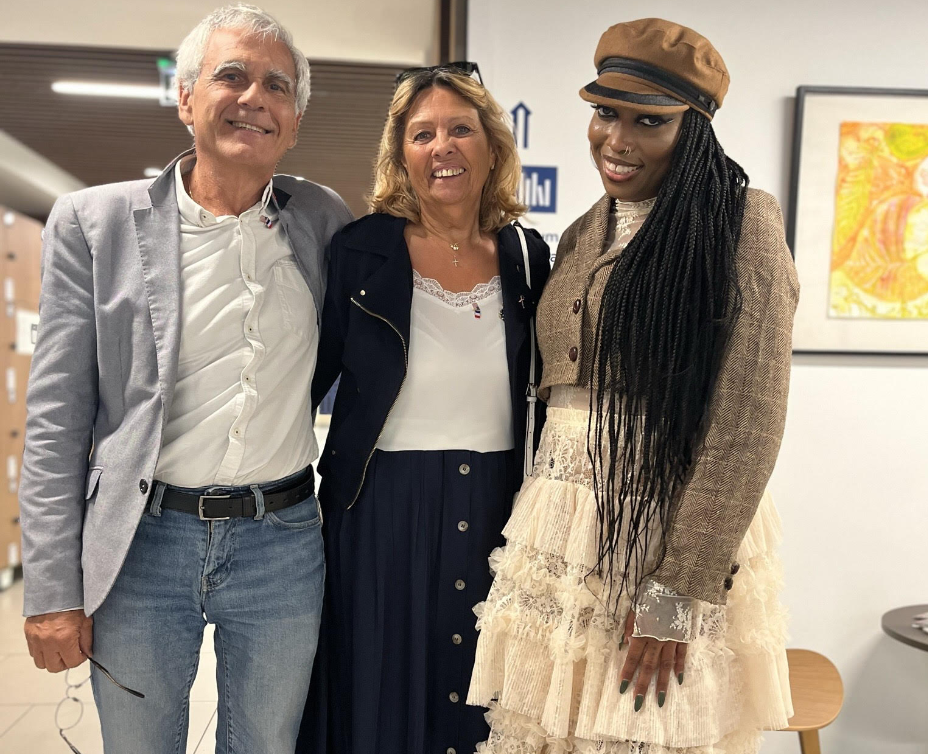
The symposium, as well as a temporary installation of what will hopefully one day be a permanent Josephine’s Bookshop in Paris, served as a cultural safe space for many Black American expats living in Paris, Jeannine told me. While the installation and symposium constituted a major success, the challenges that lie ahead are many. In the very room we were sitting in to have our interview was located on one of the most precious real-estate strips in Paris, a series of art galleries, high-end French bistros, antique shops, and designer stores where many of the owners inherited the property from family trees that span centuries. We were just a short walk from the Pantheon as well, where Baker was inducted in 2021. Many of the more recent businesses are not able to buy the building they’re located in, which would cost millions, but instead opt to purchase a lease at a price point still much higher than the French, or American, national average. The problem of real estate in such a highly-sought after city coupled with the exorbitant price of importing English books post-Brexit creates a maze of problems. Add the laborious labyrinth of French bureaucracy into the equation and the whole endeavor feels like an endless uphill battle.
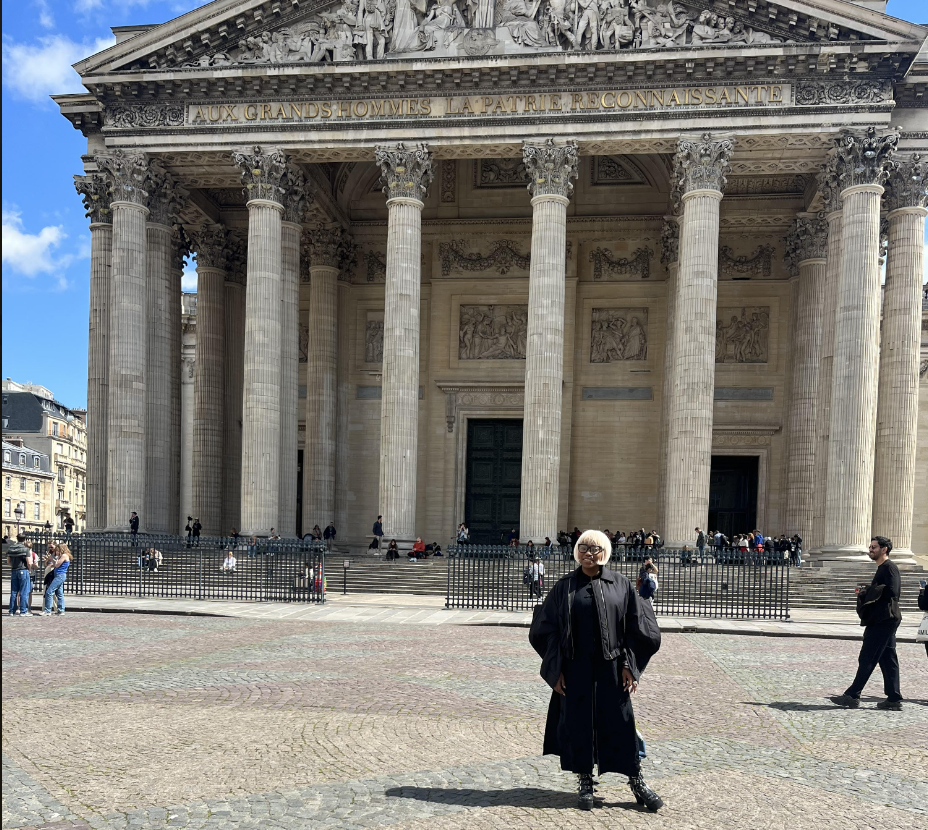
But I was speaking to a woman who had faced one challenge after another and refused to succumb to complacency. She has sold books on horseback and on the street corners of universities, works with youth who are often in very precarious situations, and successfully bought a building with a price tag over $700k. As I said, she isn’t one to throw her hands in the air in defeat.
To this effect, she told me, “It’s like a flower - I can’t just make it open because I want it to. But I know it will bloom eventually, then I can sit back and say, ‘damn that’s beautiful, I’m so glad I’ve just let it be.’ I believe that Josephine’s will happen in her own time and way.” She recently made an offer to the owner of Ida’s Medicis at 9 rue de Medicis and eagerly awaits a response on purchasing his lease.
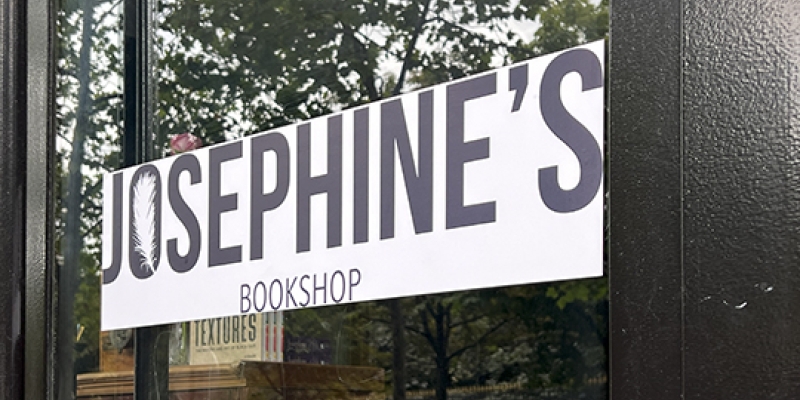
At the end of the day, it’s not about personal achievement or even the potential glamor and prestige that comes with owning a Parisian storefront. It comes back to serving the same community that got her to where she is today, even if it means facing immense economic challenges. It’s about building a global overground underground railroad. We discussed at length the exponential growth of enormous corporations and multi-million dollar enterprises that swallow local businesses in a system that often centers the “I” instead of the “we.” France doesn’t have large bookstore chains like Barnes and Noble, and Amazon, while growing in popularity, has still not reached the same market size as the U.S.
When I asked her what types of lessons she has learned since “going global,” she told me, “I believe that the experiences I’m having are happening so that I can understand the problems, point them out, and facilitate solutions. The global economy, from the perspective of small businesses, has a lot of work to do. No one bats an eye that McDonalds is here, but when people see a small bookshop attempt to take up space, people ask how is that possible because it’s incredibly difficult. And it shouldn’t be.”
These problems, while they may be heightened between certain sets of borders, are not unique to one country or another - they reflect a global phenomenon. Jeannine has been able to stay motivated by frequently invoking the spirit of Ida B. Wells, as well as Baker and Tubman, in her advocacy and projects, drawing parallels between historical struggles against oppression and current challenges faced by independent bookstores and threats to intellectual freedom.
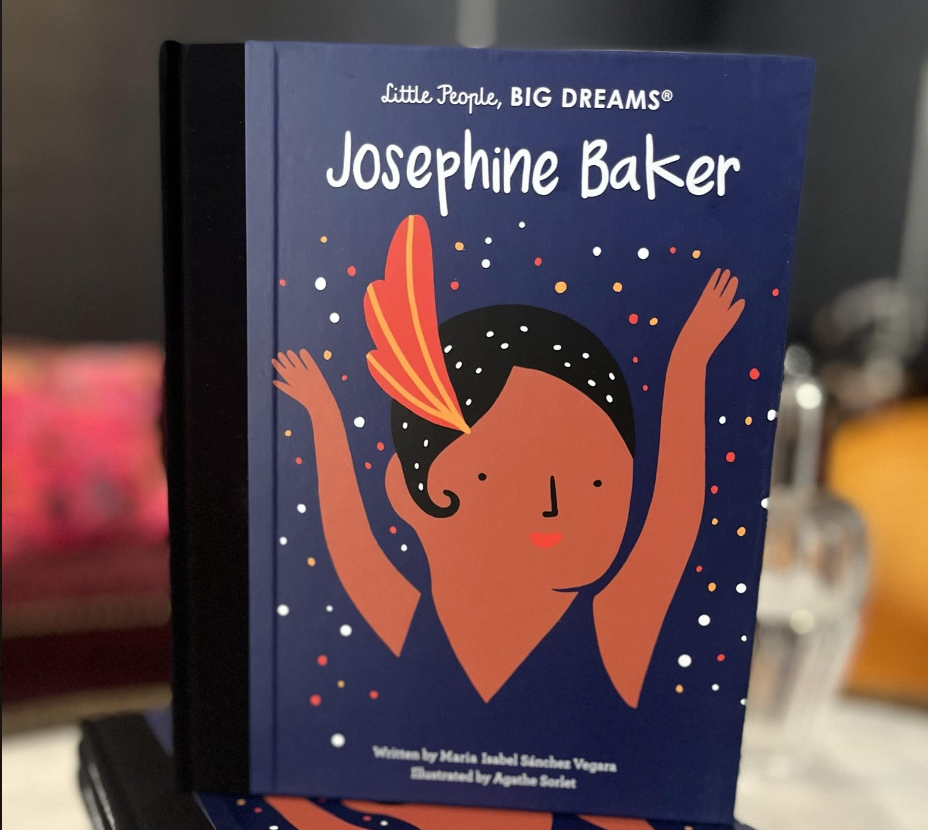
The community that she has slowly and scrupulously begun to form has been able to lift up her efforts as well. All of the networking opportunities and contacts she had made in Paris, whether it be with her partners at American University, with authors like Sylvia Serbin, Terri Simone, Ajiri Aki, and Jake Lamar, with other expats (many of which come from Philly), notably Lindsey Tramuta, Denise King, Camille Rich, and Maria Bello or with the owner of Red Wheelbarrow, Penelope Fletcher, is a reflection of the collective community care that often springs up in the book world, a mindset that is progressively disappearing in the contemporary capitalist landscape of our age.
To this, she added, “Coming from and being raised in Black southern culture, we just learn how to take care of each other by moving in the same ways that Harriett would have on the underground railroad or Josephine did as a spy. You’re taking care of your people without it being for commercial gain. A lot of it happens in silence.”
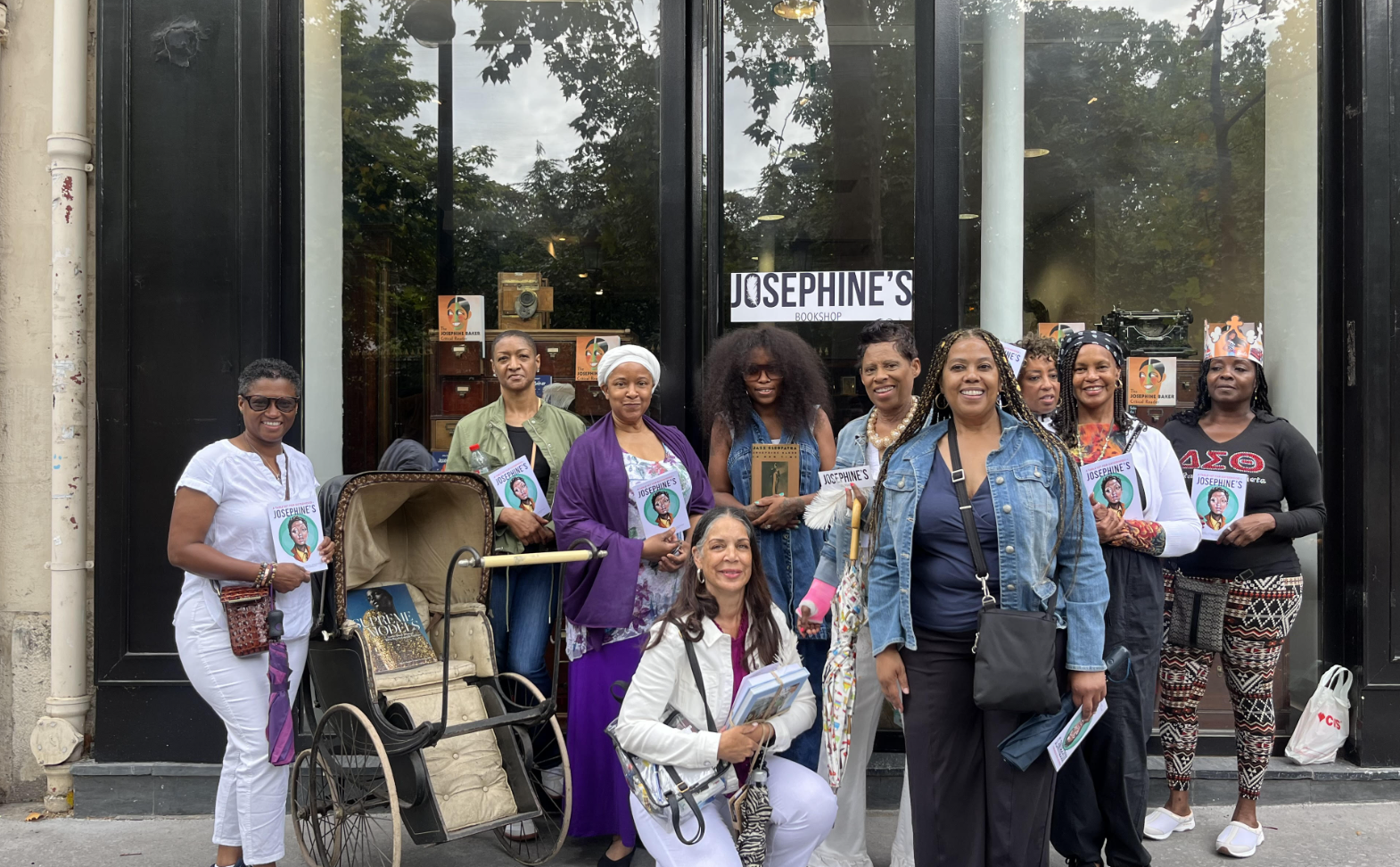
Even after presenting her case to several officials, armed with fact sheets and examples of French law that promotes literacy and protects bookstores and libraries, no large scaled funding has trickled in just yet. Through Jeannine’s lens, building a community and networking in Paris has reflected this need to take care of one another in order to succeed, because there is no one stepping in and assuming the responsibility, nor is there robust infrastructure in place to support small businesses on a global scale.
And again, despite these setbacks, the plans for expansion continue. Crossing over to another continent, Jeannine has also begun to have the similar conversation she’s had with Tubman, Wells, and Baker with Wangarĩ Maathai, a Kenyan political activist, feminist, and environmentalist of the 20th century who led the successful Green Belt Movement that planted over a million trees in the country after British colonialism and empowered thousands of women to stand up for their rights. In honor of the first African woman to win the Nobel Peace Prize, Jeannine has been in close contact with the still-active movement in preparation of the 20th anniversary of Maathai receiving the prize. Plans to weave a bookshop into the planned year-long dedication are in the works with a producing partner, Cthrough Productions, on the ground - a refreshing fact given the struggles she’s had bringing English books to Paris.
With this on the horizon, the plans in Paris are continuing to form and evolve in parallel. Jeannine wants to design the next Josephine Bookshop installation as a reconstruction of Baker’s childhood tenement home in Saint Louis. She spent the summer working on a novel and a memoir thanks to her renowned agent, Marie Brown, who helped her land two book deal with Amistad/ HarperCollins. And she also recently launched a campaign to send ten Philly youth to Paris after a twelve week credit bearing course. Most of the students have no passports, have never been on a plane, and formerly dropped out of traditional high schools. She is hopeful that with community support, they will head to Paris to study Baldwin and Baker this November.

Often overshadowed by her work as a war hero, spy, and performer, Josephine Baker was also a passionate advocate and activist for youth. She adopted twelve children from all over the world to form what she called her “rainbow tribe” with the goal of showing that “united children from different races, raised together as siblings, have no animosity; that racial hate is not natural. It’s an invention by mankind.” Jeannine wants to channel that sense of inclusiveness and expanded opportunity to allow young Philadelphians to go global as well.
At the root of this mission, she wants to combat low literacy rates and deteriorating reading levels, for both youth and adults. “The entire book industry—stores, agents, authors, publishers, etc. get to see increasing literacy levels as our collective cause. If we don’t, we are complicit in our own demise.” She is working to bring students to Paris, but also has plans to construct libraries at existing youth program spaces, such as Aaron Campbell’s “Level Up” in West Philadelphia and Building African American Minds in Easton, Maryland, as well as continuing to employ young adults in her bookshops.
She asks the question, “what happens in a place where people are not literate and are not able to fully communicate their thoughts and ideas through words?” More often than not, it creates an environment where violence proliferates and communities are torn apart. That is what she is fighting against with these community partnerships, plans to go abroad, and the ongoing initiatives of Ida’s and Harriett’s.
I began to wrap up the conversation with a question that kept resurfacing in my mind: “After the challenges you encountered in finally securing your own space in Philadelphia, and understanding how significant ownership was for you personally and for the community, you now find yourself in Paris. After what may have felt like an uphill journey, you’re still expanding, still growing, and still seeking to inspire. I have to ask—what drives you to stay motivated and keep all these projects going?
She burst into a laugh that resounded off the book-covered walls. “I’m a time traveler. I spend time in the past, in the present, and the future and I often feel like it all starts to blend together. I try to think about what it might be like for my great-great-great grandchildren and envision a future for them. I really wish that I could have that knowledge from my ancestors, but because so many of them were illiterate, including my great grandmother. I don’t have anything in that way – I have to pull it up out of my own genetics or read other peoples’ stories. I think about what I’m leaving for somebody else, what kind of legacy and tools I can give them so they can keep going, and that gives me fuel.”
In closing, she emphasizes that bringing these exciting projects to life requires not only the belief of the community but also the support and investment of government, corporations, businesses, and organizations with the financial resources to make the vision a reality and make Philadelphia a viable part of the global conversation.
“I can envision a different possibility and reality as a time traveler, just like Baker, Tubman, and Wells once did. I just want to say, you know, come on because you’re slowing down the progress.”
As the "queen of the curveball," Jeannine A. Cook consistently turns obstacles into stepping stones, driving her bold vision of community, activism, and global literary spaces forward with unwavering resilience. Philadelphia, and the world, need more bold visionaries like her.
